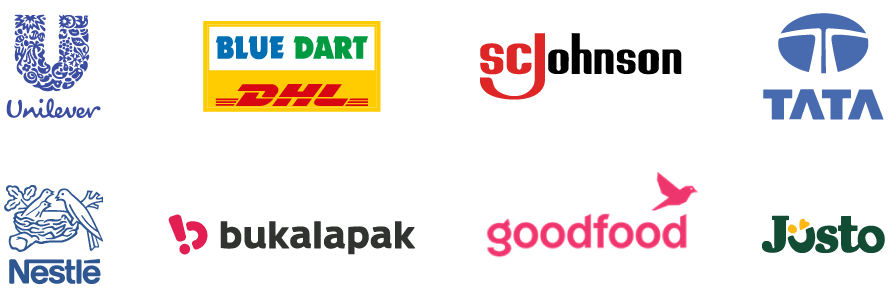E-grocery is now becoming a preferred mode for shopping groceries, fresh fruits and vegetables, personal care, and dairy, among others. While the sector is still nascent, customers are flocking to these platforms to fulfill their daily/weekly needs. Thanks to the very nature of the grocery requirements, customers expect quick and efficient deliveries.
SLA management: With multiple deliveries to do on any given day, managing SLAs is a huge problem for riders. Everything from real-time traffic constraints to time taken at a customer’s place to deliver the goods, affects the promised SLA.
Managing assets and fleet utilization: More riders don’t necessarily mean a higher number of deliveries. Can you make fewer riders deliver more goods? Also, operation managers find it really tough to allocate deliveries fairly to each rider/driver. Some drivers have to travel a lot to do their deliveries, some not so much, whereas some drivers might have to deliver more valuable goods as compared to the others. Also, managers might want to match the best drivers to the most valuable customers. Optimizing for all these scenarios takes a toll on managers.
Manual planning and tracking: A lot of operation managers do manual route planning. Manual route planning depends on the knowledge and biases of the operation manager. It also does not account for real-time events like traffic, canceled delivery, roadblocks, accidents, etc.
Inaccurate geocoding: If finding addresses was really easy, on-time delivery would not be so tough. But the sad truth is that getting accurate addresses is a luxury across countries. This results in delayed ETAs and low level of customer satisfaction.
A leading E-grocery player in India, which has operations in 25+ cities and has over 18,000+ products on its platform, was looking to solve the following problems:
With Locus Route Planning Software onboard, the E-grocer’s orders are batched throughout the day. Locus generates optimum routes that maximize volume utilization, orders/vehicle and minimize travel distance, while ensuring that orders are delivered as per customer preferred slots.
In addition, Locus has modeled several on-ground constraints such as route restrictions, saddlebag constraints, base van counts, custom reports, etc that help drive high operational efficiencies.
The company achieved 99.5% on-time delivery, volume utilization of 95%+ and achieved a lower delivery cost and increased orders per delivery bike.
Locus DispatchIQ, the algorithmic route planning optimization software, generates optimized routes using Artificial Intelligence (AI), thereby enabling the riders to deliver more with less time. This results in increased vehicle efficiency and better compliance
Time slot management and same-day deliveries to gain customer satisfaction
Driver allocation system to ensure high rider time utilization
Proprietary Geocoding services to improve pickup and drop point accuracy, which helps in decreasing costs in the all-mile delivery operations
E-grocery

Achieve time-slot based deliveries
Achieve same-day deliveries
Use existing infrastructure to come up with an omnichannel platform
Analyze and track the performance of its workforce, warehouses, and vehicles
Achieve the best possible fleet mix for both one-time and daily dynamic fulfillment operations plans
Optimize both forward and reverse logistics
Real-time ETA, with delay notifications
Identify service zones for your stores and also come up with the best warehouse location
Come up with optimized dispatch plans after considering SKU bifurcation, regulatory constraints, work timings, etc.





Schedule a demo with one of our industry experts
How can Locus help manage your logistics?
Join Industry Leaders:


